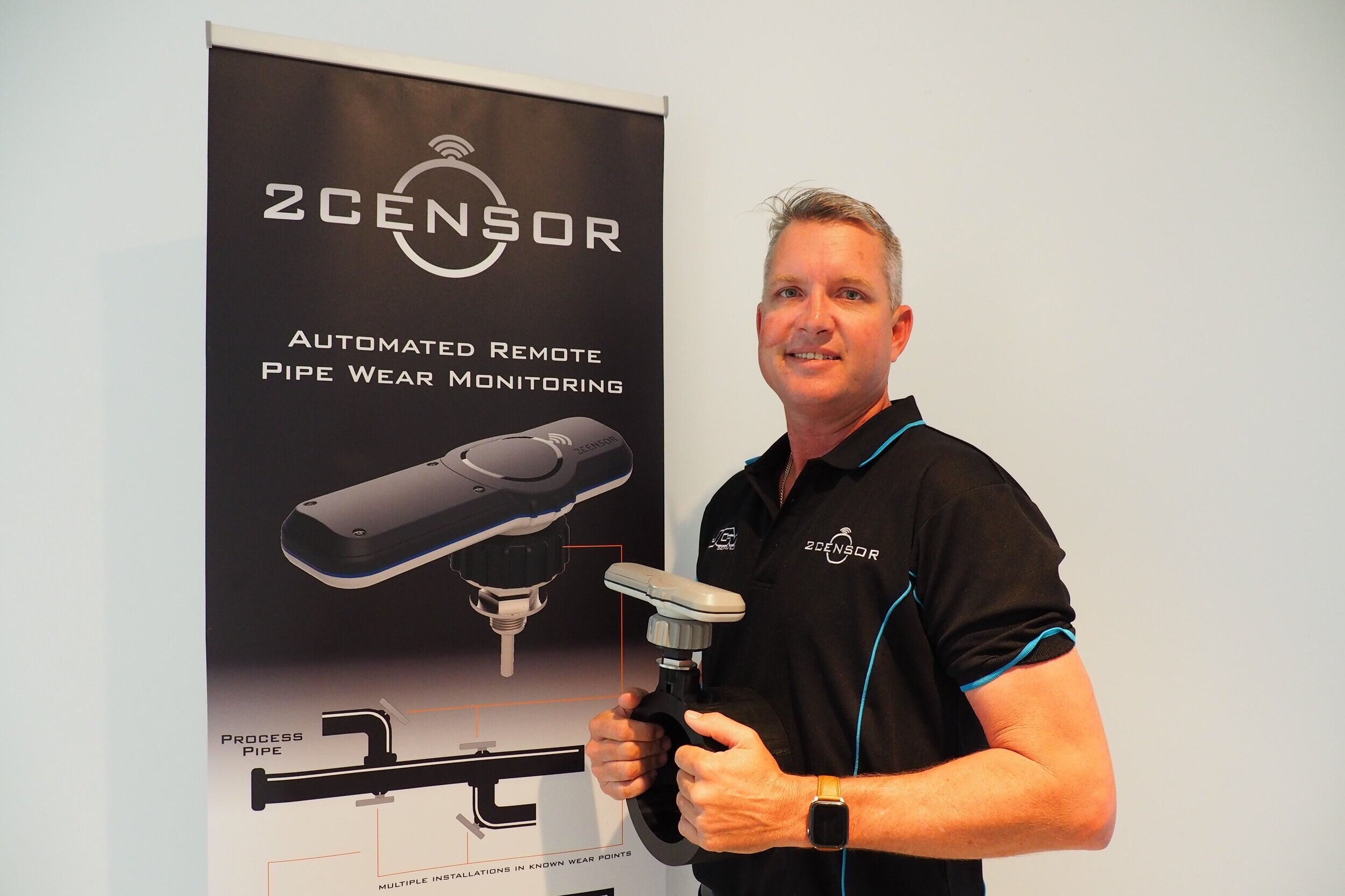A global solution to a local problem
When someone introduces themselves as the founder of a technology company, you might expect years or even decades of research and development under their belt before they were able to reach their first sale.
For maintenance engineer Corey Vaughan, two years is all it took to convert his idea of remote and predictive maintenance into a technology company trading globally from his hometown of Mackay.
Commercialising this technology, known by specialists as the internet of things, wasn’t straightforward, but the idea itself was simple. If he could predict when a pipe would fail, he could save his clients hundreds of thousands of dollars.
“I’ve spent 15 years in pipe maintenance at process plants in the Bowen Basin. When one of these plants go offline, it can cost a company thousands of dollars a minute in lost revenue.
“If the pipe is carrying hazardous chemicals, the environmental damage can increase the bill dramatically. When you’re also using and charging for technicians to fix the damage, it becomes both expensive and dangerous,” Mr Vaughan said.
“I thought if there was a way to predict pipe failure, you’re eliminating those risks for site managers.”
Corey’s solution, trading under the name 2Censor, uses a combination of software, sensors and Wi-Fi technology to remotely monitor industrial pipe wear and predict when it’s about to fail.
His knowledge of IoT was limited before he invented the product, but his 15 years in the business gave him the domain expertise needed to design a practical solution for maintenance engineers and provided him with the connections needed to bring it to market.
“A client of mine asked if I could find a product to solve the business problem and I simply couldn’t find one at an affordable price,” Mr Vaughan said.
Smart sensors for this type of application rely on several sensors to collect data on temperature, humidity and crack exposure to calculate the rate of pipe degradation.
When you include data transmission, electrical power and the software needed to connect the equipment to a base station, the IoT becomes too expensive and too complex for a lot of site managers.
“When I speak to innovation and automation guys on site, they compare IoT to an app store.
“There are so many options out there and it becomes too time consuming for maintenance staff to consider,” Mr Vaughan said.
Corey teamed up with a backyard inventor in Brisbane to develop and patent 2Censor. His solution uses just two sensors to monitor the pipe and send the information back securely to a base station via a wireless signal.
Instead of using a subscription model similar to other IoT companies, Corey integrates his software into existing maintenance systems, reducing costs while giving site managers total ownership of their data
2Censor also simplifies the technology by using just one input for its sensors. Every 1 millimeter of damage is monitored to understand the rate of wear which is then used to predict exactly when it will fail.
Corey said it wasn’t until he entered an international innovation competition that things really took off.
“We teamed up with a mining company in Chile which quickly grew into new contracts with four other mining companies in Chile.
“Australia has a world-class reputation for mining, so within a year we secured sales in Brazil, Peru and Colombia,” Mr Vaughan said.
“We’re also in talks with companies in Papua New Guinea, Indonesia, South Africa and the United States.”
2Censor is currently producing its last batch of product overseas and is in talks with a manufacturer in Brisbane to bring production onshore.
Corey believes Mackay is a hub of innovation for the METS industry and can expand manufacturing with the right mindset.
“We shouldn’t be solely reliant on the mines for income -- we should instead apply our expertise in manufacturing and look at ways to trade globally out of this region.
“You don’t need to be in a big city to run a technology company.”

